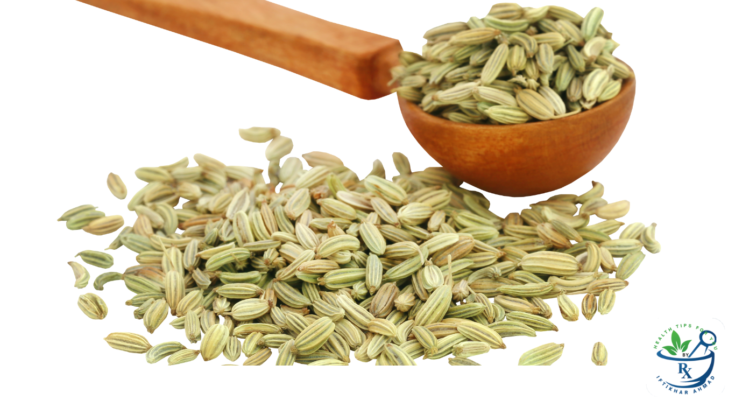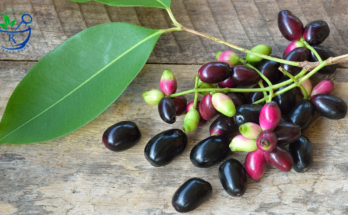In the busy world of health and happiness, there’s a little secret that’s been around for ages and it’s called fennel. This humble herb isn’t just about adding flavour to your food; it’s packed with goodness that can make a real difference to your well-being. As someone who cares about helping people live their best lives, I’m excited to share why fennel deserves a special place in your heart and your kitchen and what are the health benefits of fennel.
What’s So Great About Fennel?
Let’s start with the basics of the health benefits of fennel. Fennel, scientifically known as Foeniculum vulgare, is a plant that’s been used for centuries in cooking and medicine. It’s got a bunch of vitamins, minerals and other good stuff that your body loves.
Why Your Digestion Will Thank You
If you’ve ever had a stomach ache or felt bloated after a big meal, you’ll appreciate what fennel can do for your digestion. Fennel seeds, especially, are like little helpers for your tummy. They can calm down gas, bloating and that uncomfortable feeling of fullness. How? They relax the muscles in your stomach and gut, so everything moves along smoothly.
Fighting Off Bad Stuff with Antioxidants
In today’s world, we’re surrounded by things that can harm our bodies, like pollution and stress. That’s where antioxidants come in, and fennel has them in spades. Antioxidants are like bodyguards for your cells, protecting them from damage. So, by munching on some fennel, you’re giving your body an extra boost against the bad stuff.
Taking the Sting Out of Inflammation
Ever had a sore joint or swollen muscles? That’s inflammation, and it’s not fun. But fennel can help ease the pain. It’s got natural compounds that calm down inflammation, making you feel better and keeping your body in balance.
Keeping Things in Check
Your body works best when everything is in balance, especially your blood sugar and cholesterol levels. Fennel can help with that too! Studies have shown that fennel extract or tea can help keep your blood sugar steady and lower your cholesterol, which is great news for your heart and your overall health.
How to Enjoy Fennel Every Day
Now that you know all the amazing things fennel can do for you, let’s talk about how to make it a part of your daily routine.
In the Kitchen:
Fennel bulbs are crunchy and slightly sweet, perfect for adding to salads or roasting with other veggies. You can also chop up the leaves and sprinkle them on top of dishes for a fresh burst of flavour. And don’t forget about fennel seeds! You can use them to flavour soups, stews, and even baked goods.
In the Garden:
If you’re feeling adventurous, why not try growing your fennel? It’s easy to grow, even if you don’t have a green thumb. Just plant some seeds in well-drained soil, give them plenty of sunlight and water, and watch them grow!
Health Benefits of Fennel from Medical Chemistry
Medical chemistry research provides valuable insights into the chemical composition of fennel and its bioactive constituents. Fennel contains essential oils rich in compounds such as anethole, limonene and fenchone, which contribute to its distinctive aroma and therapeutic properties. These compounds exhibit antioxidant, anti-inflammatory and antimicrobial activities, supporting fennel’s role in promoting health and well-being.
Health Benefits of Fennel From Nutrition
Nutrition books emphasize the nutritional benefits of fennel, highlighting its high content of vitamins, minerals and dietary fibre. Fennel is a good source of vitamin C, potassium and folate, essential nutrients that support immune function, heart health and cellular metabolism. Additionally, its fibre content promotes digestive health by regulating bowel movements and promoting satiety.
Health Benefits of Fennel From Pharmacognosy
Pharmacognosy texts delve into the traditional uses of fennel in herbal medicine, spanning cultures and civilizations. From ancient Ayurvedic texts to traditional Chinese medicine, fennel has been valued for its diverse medicinal applications, including its use as a digestive aid, respiratory remedy and lactation enhancer. Pharmacognosy research further validates these traditional uses, providing scientific evidence for fennel’s pharmacological effects.
Health Benefits of Fennel From Pharmacology
Pharmacology studies explore the mechanisms of action underlying fennel’s therapeutic effects, elucidating its impact on various physiological processes. Research indicates that fennel exhibits antispasmodic, carminative and hepatoprotective properties, making it useful for alleviating gastrointestinal disorders, such as irritable bowel syndrome and dyspepsia. Additionally, fennel’s estrogenic activity has been studied for its potential role in managing menopausal symptoms and supporting reproductive health in women.
In conclusion, the multidisciplinary approach of medical chemistry, nutrition, pharmacognosy, and pharmacology provides a comprehensive understanding of fennel’s therapeutic potential. By harnessing the insights from these fields, we can unlock the full spectrum of benefits that fennel offers for health and wellness.
Conclusion: Health Benefits of Fennel
In conclusion, fennel may be small, but it’s mighty when it comes to your health. From soothing your stomach to protecting your cells, this little herb has a lot to offer. So why not add a little fennel to your life today? Your body will thank you for it!
References:
- Sharma, V., & Sharma, A. (2021). Foeniculum vulgare: A comprehensive review of its traditional use, phytochemistry, pharmacology, and safety. Arabian Journal of Chemistry, 14(8), 103230.
- Tognolini, M., Ballabeni, F., Bertoni, M., & Bruni, N. (2007). Implication of the essential oil of Foeniculum vulgare Mill. in the modulation of physiological processes. Natural product communications, 2(1), 23-26.
- Sowbhagya, H. B. (2014). Chemistry, technology, and nutraceutical functions of fennel (Foeniculum vulgare Mill.): an overview. Critical reviews in food science and nutrition, 54(3), 416-429.
- Pharmacognosy textbooks: Reference information can be obtained from leading pharmacognosy textbooks such as “Textbook of Pharmacognosy and Phytochemistry” by Biren Shah and A.K. Seth and “Pharmacognosy: Fundamentals, Applications and Strategies” by Simmy Jaggi and Priti Taneja.
- Nutrition books: Key insights can be sourced from reputable nutrition textbooks such as “Understanding Nutrition” by Eleanor Noss Whitney and Sharon Rady Rolfes and “Nutrition: Concepts and Controversies” by Frances Sizer and Ellie Whitney.
- Medical chemistry books: Valuable information can be found in medical chemistry textbooks such as “Basic Concepts in Medicinal Chemistry” by Marc Harrold and Robin Zavod.
- Pharmacology books: Insights into fennel’s pharmacological properties can be gleaned from pharmacology textbooks like “Rang & Dale’s Pharmacology” by Humphrey P





